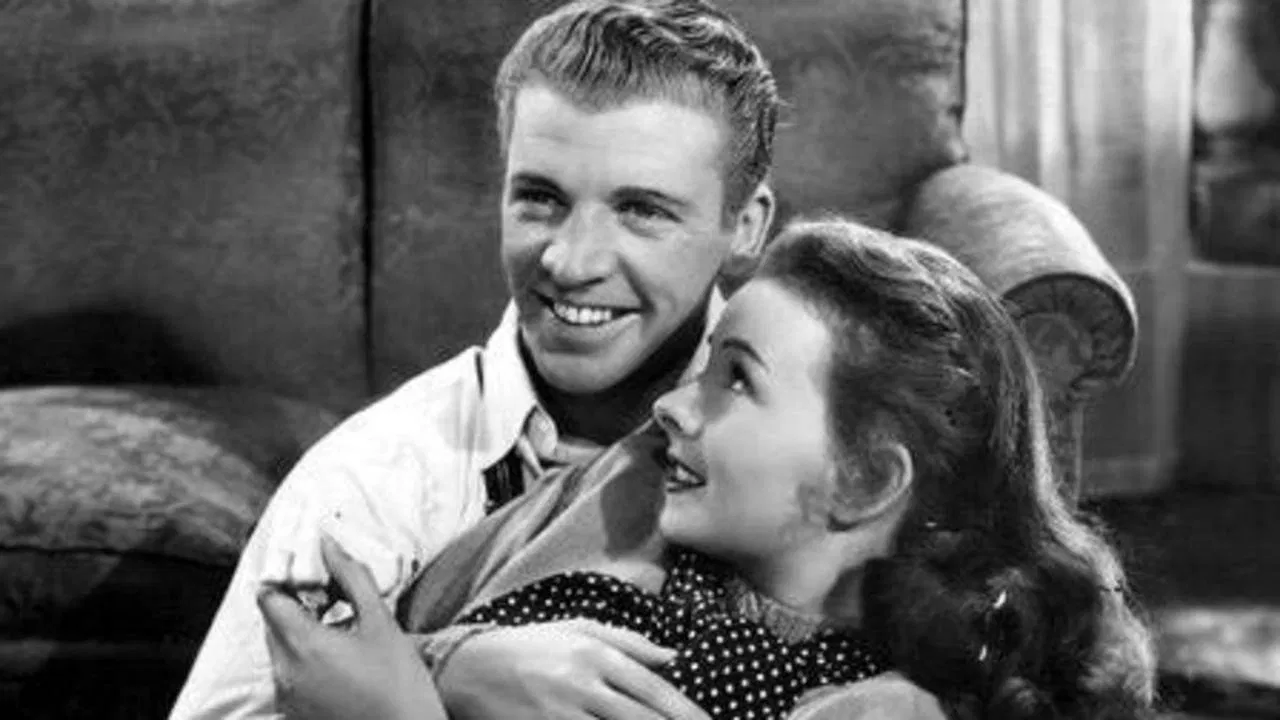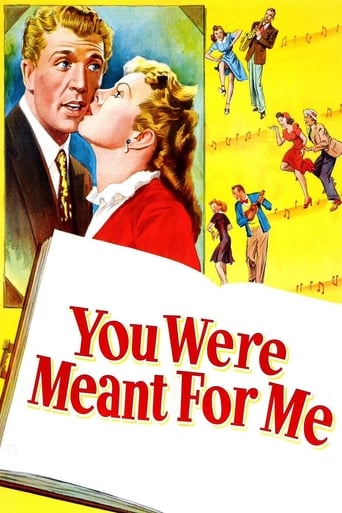

Dailey's alto sax solos were dubbed by Russ Cheever. Songs and musical numbers included: "Crazy Rhythm" (Irving Caesar, Roger Wolfe Kahn, Joseph Meyer), "You Were Meant for Me" (Arthur Freed, Nacio Herb Brown), "Goodnight Sweetheart" (James Campbell, Reginald Connelly, Ray Noble), "If I Had You" (Campbell, Connelly, Ted Shapiro), "Ain't She Sweet" (Jack Yellen, Milton Ager), "Ain't Misbehavin" (Andy Razaf, Fats Waller), "I'll Get By" (Roy Turk, Fred Ahlert), "Concerto in F" (George Gershwin, played by Levant), "Sweet Georgia Brown" (Ben Bernie, Maceo Pinkard, Kenneth Casey), "What Can I Say After I Say I'm Sorry" (Walter Donaldson, Abe Lyman), the latter two done by Eddie Miller on the soundtrack.Copyright 16 January 1948 by 20th Century-Fox Film Corp. New York opening at the Roxy: 28 January 1948. U.S. release: February 1948. U.K. release: 23 August 1948. Australian release: 1 April 1948. 8,247 feet. 91 minutes.SYNOPSIS: Small-town girl, Jeanne Crain marries bandleader Dailey. Tiring of constant travel, Crain goes home. His bookings ruined by the onset of the Great Depression, Dailey joins her there, along with his cynical manager, Levant. Then Dailey decides to take off alone, determined to conquer the big city. COMMENT: Moderately entertaining, black-and-white musical, runs through some familiar songs in a pleasant manner and is agreeably acted. The script is an old one and the direction does little to give it sparkle. Production values are moderate. But fortunately I liked all the songs and Levant's piano-playing is in top form. It was also a pleasure to hear Gershwin's "Concerto in F". Dailey is his usual bumptious, go-getting self - he's not one of my favorites, by any means - but Jeanne Crain is both appealingly nice and suitably vulnerable, and there's a fair line-up of character players including Percy Kilbride and Selena Royle.
... View MoreThis 1948 film starts its action 20 years earlier in 1928 when the country was in the throes of the Roaring Twenties, the Jazz Age when it seemed like the national party would never end. You Were Meant For Me stars Dan Dailey as a Rudy Vallee like band-leader with Jeanne Crain as the small town girl whom he falls for and marries while on tour. One thing though, Vallee never had the dance moves that Dan Dailey had. I always marveled at how gracefully that big man moved.If this had been done over at Warner Brothers Jack Carson would have been cast in the lead. Dailey is quite the party animal when good times are plentiful. But the stock market crash comes even with bookings canceling all around him, Dailey feels the need to put up a big front. The man needs a reality trip and Crain is ready to give it to him.The score is taken from various standards of the Roaring Twenties and that's the best part of the film. Oscar Levant is in the cast as his usual witty and cynical self and we hear him do Gershwin's Concerto in F. Percy Kilbride and Selena Royle are Crain's small town, home town parents who give out some practical advice.If you like the music of the Twenties than You Were Meant For Me is meant for you.
... View Morethat really is Levant at piano "You Were Meant For Me" stars two second-tier stars, Jeanne Crain and Dan Daily and it's obvious that it's a lesser Twentieth Century-Fox production. Now this isn't necessarily a bad thing. Provided you like old formulaic films, you'll have a nice time watching it.Dan Daily stars as a big band leader back in the late 1920s. A young fan (Crain) falls in love with him and they are soon married. Life for the couple consists of them begin on the road all the time, but it works since they are so much in love. But, when the stock market crashes in late 1929, bookings are canceled right and left and Daily and his band cannot find work. So, they move back home with her family. The problem is that Daily is used to being a big-shot and after a while this gets in the way of him finding work, as his sights are simply set too high. With his wife about to have a baby, she's simply had too much--too many dreams, too much talk and too much bragging. So, she explodes and he takes a walk. What's next? See the film.I noticed that one reviewer didn't like the ending. Well, perhaps it is a little too perfect, but I liked it. As for the rest of the film, it's pleasant fluff--undemanding but pleasant. Not a film you should rush to see but worth your time if you have nothing else to do.
... View MoreYes, I know it's been done before, but this great little tale of a struggling Thirties couple really has something special. Optimistic Dan Dailey keeps smiling through it all, Jeanne Crain lights up the screen, Oscar Levant is a wry delight, and see Percy Kilbride just before his "Pa Kettle" persona caught on. And that great title song.......! Highly recommended to all.
... View More